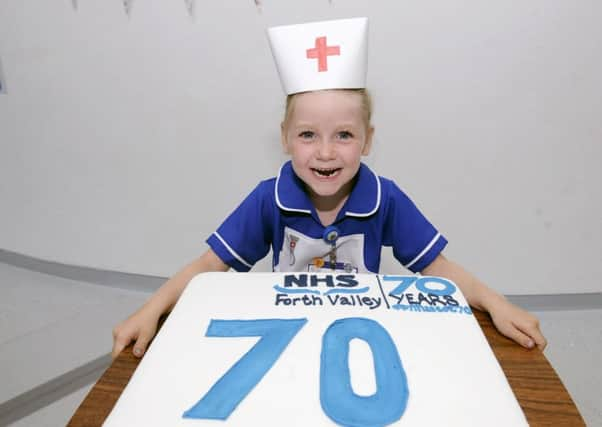Ian Swanson: In sickness and in health, NHS is still a great deal


SEVEN decades on from its foundation, the National Health Service is under pressure – a shortage of GPs, long waiting lists for many patients, beds blocked because of problems in social care and ever-growing demand due to an ageing population.
Politicians argue over funding and every now and then there are calls for new charges to be introduced – a small payment for going to see your GP or ‘hotel charges’ for stays in hospital.
Advertisement
Hide AdAdvertisement
Hide AdBut the 70th birthday celebrations are a good reminder of the importance of the NHS as a service based on need, free at the point of use and available to all.
Before Clement Attlee’s post-war Labour government created the NHS, health provision across the UK was a hotch potch of unequal access.
The advent of free healthcare was a revolution which liberated ordinary people to live fuller lives.
Parents who had previously been unable to afford a doctor to treat their sick child no longer faced that barrier; people who had suffered for years with conditions like hernias could finally get treatment; others whose day-to-day living was blighted by poor eyesight were suddenly able to get glasses.
Advertisement
Hide AdAdvertisement
Hide AdThe suppressed demand released when the free service was born on July 5, 1948, surprised even its architects. There were queues in the street outside doctors’ and dentists’ surgeries and spending in the first year vastly exceeded the budget.
Aneurin Bevan, the health minister in 1948 who spearheaded the creation of the NHS, described it as “the most civilised step any country had ever taken”.
It was the first time anywhere in the world that completely free healthcare was made available on the basis of citizenship rather than the payment of fees or insurance premiums.
There have been huge developments over the years – dramatic medical advances, new drugs, increased health provision – and the NHS has adapted and grown. Despite some ups and downs, it is still close to the hearts of ordinary people.
Advertisement
Hide AdAdvertisement
Hide AdMore than two-thirds of respondents in a recent poll said they considered the establishment of the NHS to be the country’s greatest achievement. South of the border, the NHS now operates an internal market, which has been heavily criticised.
But Scotland has steered a different course from the rest of the UK since devolution, opting not to adopt the health trust model, encouraging the private sector less and bringing back free eye and dental checks and free prescriptions.
Seventy years on, it is difficult to imagine life without the NHS. And in that context it is shocking to realise that even in many of the world’s richest countries it is still the norm to have to pay to see the doctor or have an operation.
Bevan said no society could legitimately call itself civilised if a sick person was denied medical aid because of lack of means.
Advertisement
Hide AdAdvertisement
Hide AdThe moving stories which have been told during the anniversary celebrations – of lives saved, people nursed back to health and staff going above and beyond the call of duty – are poignant testimony to the principle behind it all: a health service free to everyone when they need it, regardless of money.
In one of the world’s wealthiest countries, it will be to the shame of us all if we ever abandon that.
